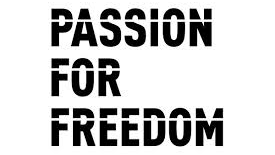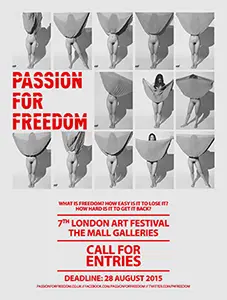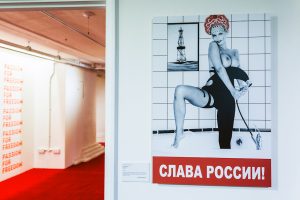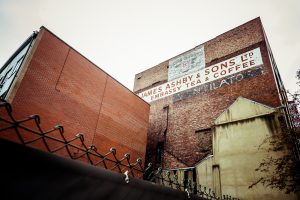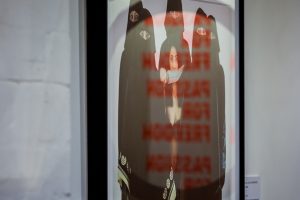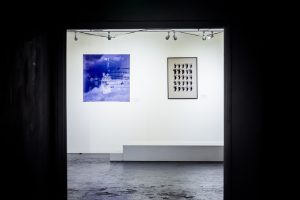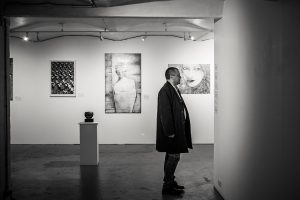LONDON, UNITED KINGDOM
Embassy Tea Gallery
195- 205 Union Street, London SE1 0LN
2014
CATEGORIES: ART, FILMS, BOOKS
6th Passion for Freedom London Art Festival in London.
The annual celebration brings together artists, filmmakers, writers and journalists from all over the world to our City of London. With pleasure and unafraid- we exhibited the most important artworks that express Freedom and how to get it back.
This autumn in 2014 we are honoured to host Gary Hill, Deeyah, Lee Weinberg and Sarah Maple as our competition judges and Miriam Elia as our Special Guest Artist, her recent court case has brought her notoriety in the politically correct circles. We would host distinguished guests from every corner of the world to join our movie screenings, presentations, performances and to come and discuss brave artists’ works.
The Passion For Freedom is turning this year’s event into a two-week protest against the disgraceful treatment of artists who are banned to make work and travel, who are jailed and even sentenced to death for their art!
The opening gala was take place at the Embassy Tea Gallery next to Tate Modern on the 8th November 2014 with all brave artist who are never give up.
AWARDS:
1st Prize – Freedom Ambassador 2015 – Seamus Moran for Harness – medium: Cast alloy/steel/textile/wood – UK

2nd Prize – Gabriela Tropia for Under the Cobblestones – video – UK
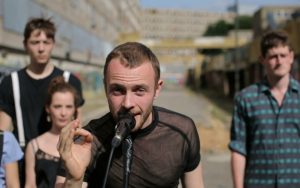
Special Award – Tal Givony & Dana Dotan for Bird – animation – Israel
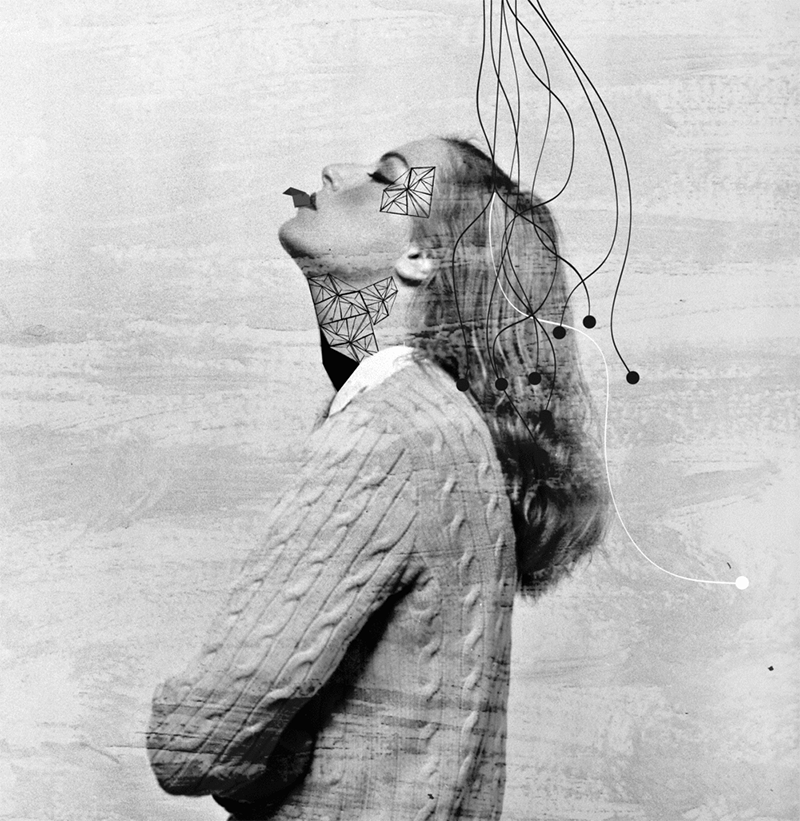
Special Award – Benedict Romain for Adam (Ground Zero) – installation Resin, rubble, shopping trolley – UK

People’s Choice Award – Izabela Maciejewska for Ghetto XXI – installation ( 3 objects – hand painted clothes) – Poland
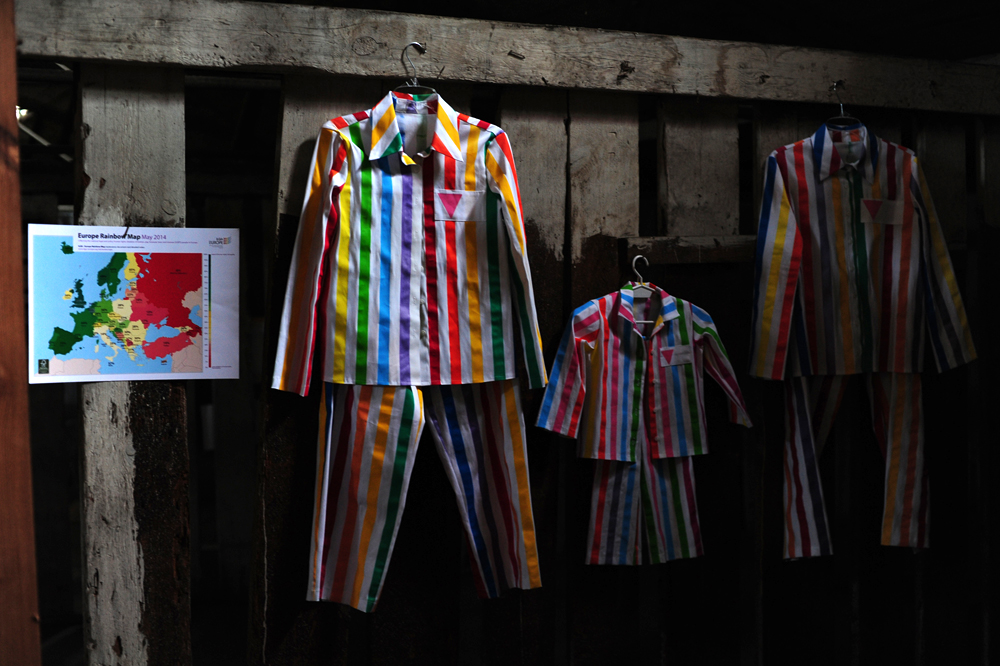
CATEGORY: FILM
AWARDS:
CATEGORY: BOOK
Passion for Freedom Festival celebrates writers who passionately discuss subjects related to freedom in a politically correct or sensitive environment and who elucidate the value and fragility of freedom in our societies. Selected Books for Passion for Freedom… Passion for Freedom Festival celebrates writers who passionately discuss subjects related to freedom in a politically correct or sensitive environment and who elucidate the value and fragility of freedom in our societies.
Selected Books for Passion for Freedom Festival 2014
The Most Dangerous Book: The Battle for James Joyce’s Ulysses by Kevin Birmingham
Nothing to Envy by Barbara Demick
Woman: Acceptable Exploitation for Profit by Shreela Flather
How We Invented Freedom & Why It Matters by Daniel Hannan
The Arrest of Ai Weiwei by Barnaby Martin
Islamophilia by Douglas Murray
The Imam’s Daughter by Hannah Shah
Agent Storm: My Life Inside al-Qaeda by Morten Storm, Paul Cruickshank and Tim Lister
Magna Carta – The Foundation of Freedom 1215-2015 by Nicholas Vincent
Sharia versus Freedom: The Legacy of Islamic Totalitarianism by Andrew G. Bostom
NOMINATES:
1. The Most Dangerous Book: The Battle for James Joyce’s Ulysses by Kevin Birmingham
Ulysses, a book once deemed obscene and prohibited, is now a revered modern classic. Birmingham’s book exemplifies the struggle of censorship versus freedom of expression. Mapping the odyssey of this revolutionary work, we see Joyce—its troubled creator, his stalwart supporters, the most publicised obscenity case in U.S. history and finally Ulysses’ admission to the canon of Western literature. What was labeled as ‘filth’ and caused outrage was ultimately redeemed because of its relevance to the text as a whole.
2. Nothing to Envy by Barbara Demick
A tour de force journey through the history of the country with the worst track record for human rights abuse, up until the present day, based on interviews with survivors who managed to defect. Welcome to North Korea, where factories are abandoned, a fifth of population dies of starvation, money is poured into nuclear weapon development and criticising the glorious leader means death sentence. Vivid and chilling, this books shows the paranoid workings of a totalitarian regime.
3. Woman: Acceptable Exploitation for Profit, by Shreela Flather
A well-researched and eye-opening book shows that freedom has no meaning for masses of women whose status is on a par with domestic animals: hard working, voiceless and disposable, their bodies exhausted with endless pregnancies. India and Africa are used as case studies. Overpopulation a shamelessly neglected subject, yet it recognized as the actual cause of all environmental and humanitarian challenges. Neither governments nor charities offer far-reaching solutions. It is left to global businesses, which need to take social responsibility and allow poorest women to generate modest incomes. Even a modicum of financial independence and access to family planning methods will have immense benefit for the woman, her family and future generations.
4. How We Invented Freedom & Why It Matters by Ram Devineni
By the tenth century, England was a nation-state whose people were already starting to define themselves with reference to inherited common-law rights. The story of liberty is the story of how that model triumphed. How it was enshrined in a series of landmark victories—the Magna Carta, the English Civil War, the Glorious Revolution, the U.S. Constitution—and how it came to defeat every international rival.
5.The Arrest of Ai Weiwei by Barnaby Martin
Ai Weiwei was in prison for two months. Many of the 55 other intellectuals arrested in the same purge, most of them friends or supporters of the imprisoned Nobel laureate Liu Xiaobo, have still to be released. Ai Weiwei’s circle is a Who’s Who? of creative contemporary Chinese thought. The interviews took place in defiance of an official ban, and Ai Weiwei tells the story of his interrogation by bored interlocutors – a dark and absurd piece of theatre in which the jailers seem as confused by their situation as their prisoner.
6. Islamophilia by Douglas Murray
“In eighty pages, you will laugh, cry, self-analyse and inevitably end up in need of a stiff drink. What you can also be sure of however, is that you’ll want more. And that can be the only criticism, for while the medicine may be grotesque, the portion is a tad too small…” Thecommentator.com
7. The Imam’s Daughter by Hannah Shah
The daughter of a British imam is living under police protection after receiving death threats from her father for converting to Christianity. The 31-year-old, whose father is the leader of a mosque in Lancashire, has moved house an astonishing 45 times after relatives pledged to hunt her down and kill her. The British-born university graduate, who uses the pseudonym Hannah for her own safety, said she renounced the Muslim faith to escape being forced into an arranged marriage when she was 16.
8. Agent Storm: My Life Inside al-Qaeda by Morten Storm, Paul Cruickshank and Tim Lister
James Bond would be green with envy. A young Dane with a long criminal record discovers Allah, becomes a radical Salafi, makes many contacts with influential clerics and aspiring terrorist in Yemen, the UK and Denmark. Those contacts prove later very useful when he loses his faith and starts working as a double agent for several Western intelligence agencies. Agent Storm then goes public and generously shares his well-documented experiences of being both an insider to radical Islamist circles and a spy.
9. Magna Carta – The Foundation of Freedom 1215-2015 by Nicholas Vincent
Magna Carta has resonated through the centuries and across the globe like no other legal text. The 800th anniversary of its first issue at Runnymede in 1215 presents an opportunity to reflect on the seminal importance of a text that enshrines the individual’s right of access to due process in law.
For this richly illustrated volume Nicholas Vincent, Professor of Medieval History at the University of East Anglia, is joined by a range of leading experts on Magna Carta from across the world to reflect on the circumstances of its genesis and its enduring importance through subsequent centuries. Magna Carta was serially reinterpreted by later generations in contexts that were often far removed from the specific grievances of King John’s barons.
10. Sharia versus Freedom: Legacy of Islamic Totalitarianism by Andrew G. Bostom
Author Andrew G. Bostom expands upon his two previous groundbreaking compendia, The Legacy of Jihad, and The Legacy of Islamic Antisemitism, with this collection of his own recent essays on the Sharia—Islamic law. The book elucidates, unapologetically, the Sharia’s defining Islamic religious principles, and resultant consequences of its application across space and time, focusing upon contemporary illustrations.
A wealth of unambiguous evidence is marshaled, distilled, and analyzed, including: objective, erudite studies of the Sharia by leading scholars of Islam; the acknowledgment of Sharia’s global “resurgence,” even by contemporary academic apologists for Islam, combined with an abundance of recent polling data from Muslim nations, and Muslim immigrant communities in the West confirming the ongoing, widespread adherence to the Sharia’s tenets; the plaintive warnings and admonitions of contemporary Muslim intellectuals—freethinkers and believers, alike—about the incompatibility of Sharia with modern, Western-derived conceptions of universal human rights; and the overt promulgation of traditional, Sharia-based Muslim legal systems as an integrated whole (i.e., extending well beyond mere “family law aspects” of the Sharia), by authoritative, mainstream international and North American Islamic religio-political organizations.
Andrew G. Bostom’s Sharia versus Freedom will prove sobering to even staunch optimists—and should be obligatory reading for all who care about Western freedom and Western understanding of the rule of law.
FILM 2014
The Film Section of the festival selects film makers who’ve proven their passion for freedom in a politically correct or sensitive environment whilst answering with their work 3 questions:
1. WHAT IS FREEDOM?
2. HOW EASY IS IT TO LOSE IT?
3. HOW HARD IS IT TO GET IT BACK?
Recognizing the importance of documentary and feature films in freedom movements, the Film Section of the festival has short-listed films for their artistic values and meaningful impact on societies.
All the trailers of the nominees are being published on the festival Youtube channel inspiring thousands of concerned citizens to watch quality films.
Set in a special setting of a gallery venue, surrounded by the various art creations of the festival, we have arrange screenings for the awarded films followed by a talk with the film makers for more than a hundred members of the audience.
Every day a new trailer will be published. Watch this space Watch these movies.
